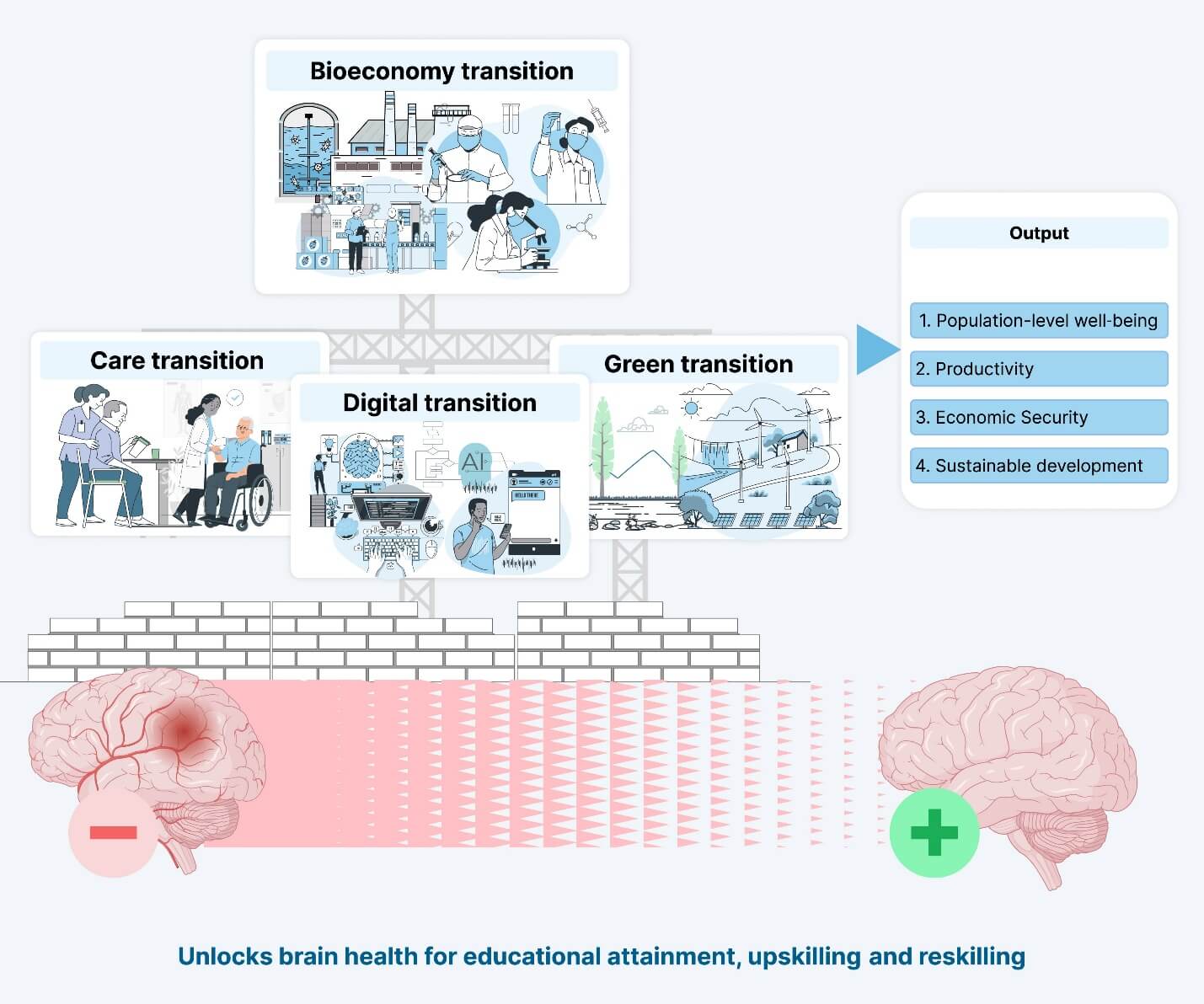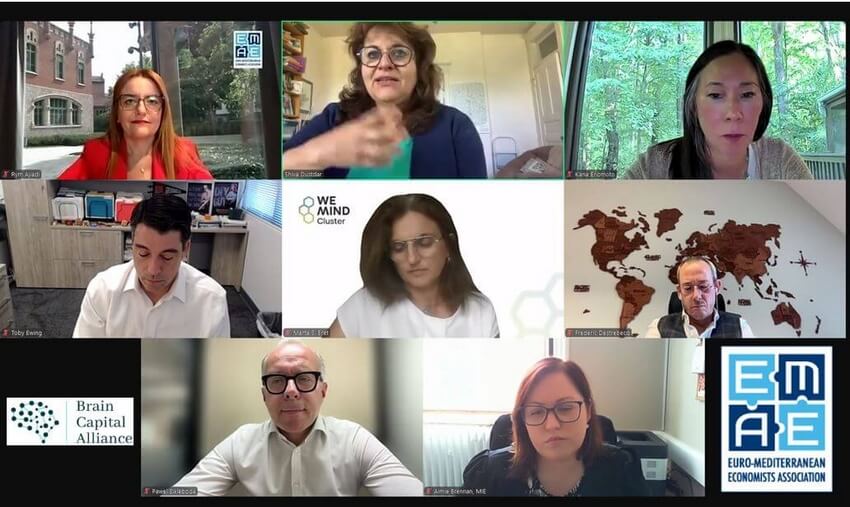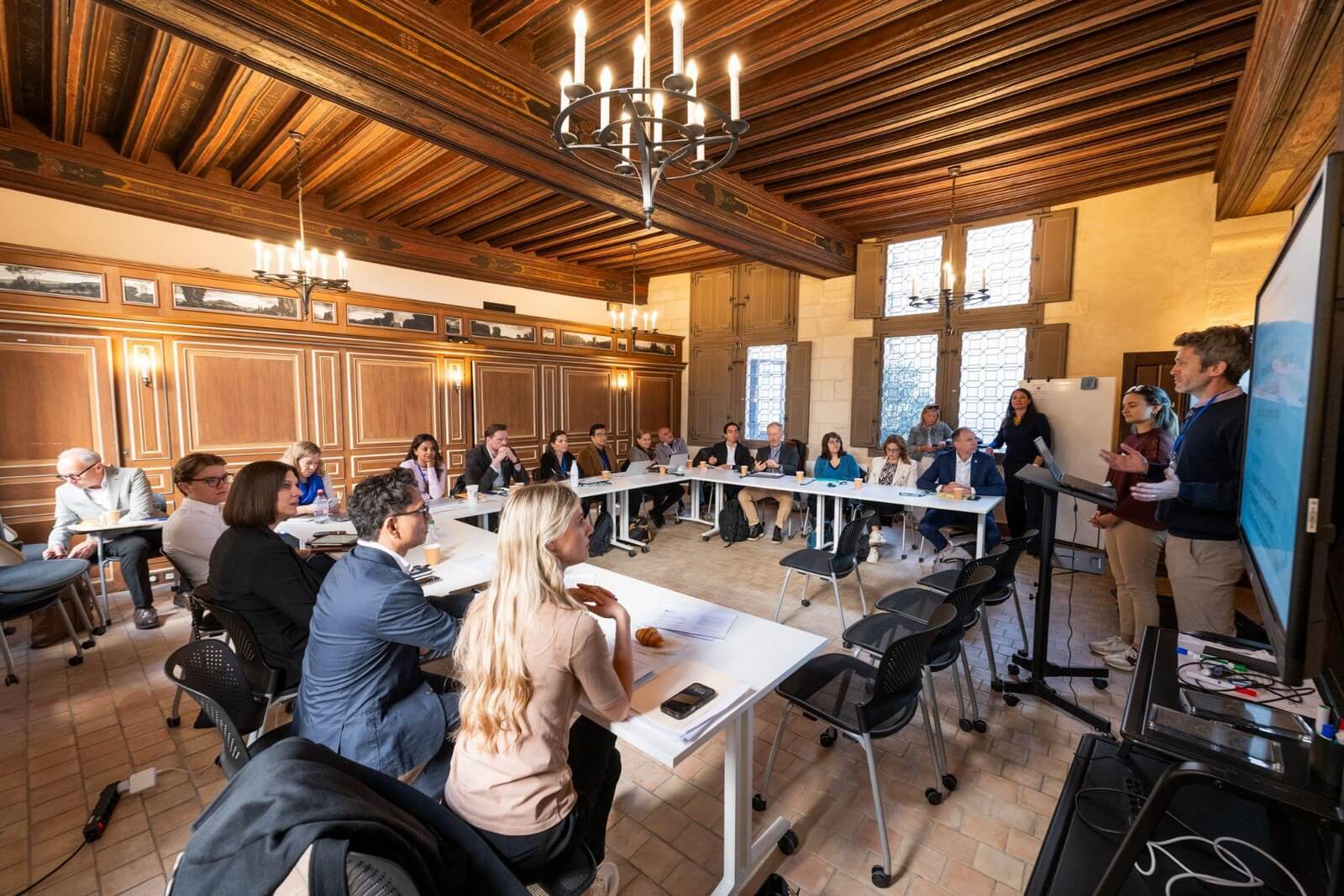The workplace demands analytical thinking, creativity, and resilience, and our nation urgently needs more advanced skills to push vital economic transitions – such as the digital and green transitions – to drive global sustainability. Unfortunately, these “brain skills” needs come at a time of historically poor brain health, exemplified by high and rising rates of mental and neurological disorders across the lifespan, noted the Brain Capital Alliance and coauthors of a new paper out in Brain Communications.
“The costs of mental health and neurological disorders are projected to soar into the trillions and our brains are under mounting pressure to navigate an increasingly complex world. A radical new approach is needed to protect and build our brain capital. Transitioning from a nation struggling to address brain health deficits to one that proactively advances brain health, performance, and skills – a brain-positive economic transformation aka brain economy – will require a systems approach,” noted senior author, Harris Eyre, Executive Director of the Brain Capital Alliance, Advisor to the Euro-Mediterranean Economists Associaiton, and Lead and Harry Z. Yan and Weiman Gao Senior Fellow for Neuro-Policy at Rice University’s Baker Institute for Public Policy.
The new paper is titled “Brain Health is Essential for Smooth Economic Transitions – Toward Socio-Economic Sustainability, Productivity, and Wellbeing”, and reports that optimal brain health is essential to smoothing major skill-intensive economic transitions, such as the bioeconomy, green, care economy, and digital transitions. Good brain health is vital to socio-economic sustainability, productivity, and wellbeing. Increased brain capital is vital to educational attainment, upskilling and reskilling. The paper provides a detailed roadmap for the brain economy.
Prof. Rym Ayadi, Founder and President of the Euro-Mediterranean Economists Association and Co-Founder of the Brain Capital Alliance, noted, “Just as with the green economy, the brain economy will require major transitions across most major sectors. No single technology, policy, or actor can achieve these critical shifts. Rather, it will take a community of people working together across systems to employ innovative solutions and accelerate change.”
This paper’s thesis was the subject of a recent EMEA webinar of the same title.
See here → https://euromed-economists.org/emea-webinar-brain-health-is-essential-for-smooth-economic-transitions-toward-socio-economic-sustainability-productivity-and-wellbeing/
The video of the webinar is available at https://www.youtube.com/watch?v=dnLH_L7AuSw






